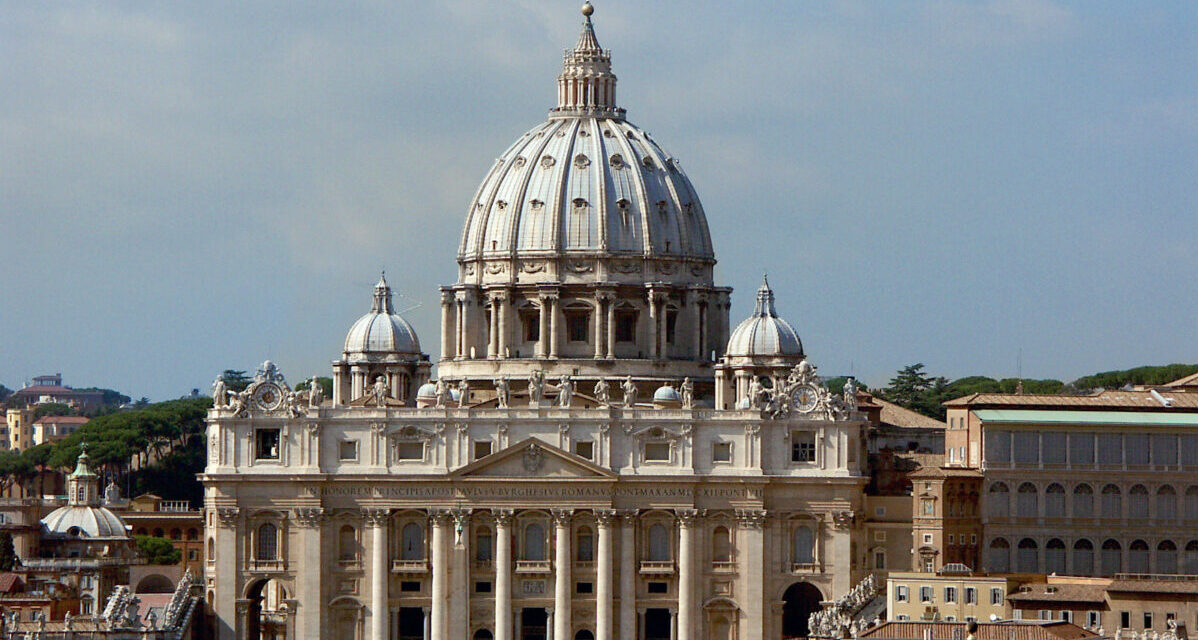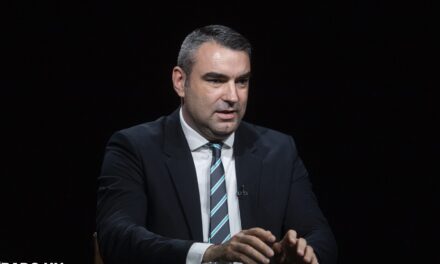It is already very difficult, but it will become increasingly difficult to maintain the primacy of Christian political culture. Written by Szilárd Szalai.
More than a week after the scandalous Olympic opening, the Vatican distanced itself from the trance re-arrangement of the Last Supper in a tight-lipped, extremely restrained text, saying it could be offensive to Christian communities.
Of course, this is not the first reaction from the Vatican to moral or even physical attacks against Christianity: while many leaders of the Church wash the feet of those who seek to abolish Christianity, in the strict sense, or at least in the figurative sense, Europe is more and more Islam becomes a nest of radicalism.
And whoever speaks out against this will have to pay hard.
Right now it is 240 million euros, but it could be 2,400 or 24,000, since the rule of law seems to be operating on a completely arbitrary basis.
Although this article is not about the Olympic opening, the Paris jamboree provides an excellent overview of the (political) state of the church.
While the remaining good-natured part of the world was clearly overwhelmed by the trance version of the last supper, the Vatican observed the events in silence for a week before indicating that they agreed with the critical voices, the processing could have been really offensive.
We could say that at least the separation has taken place, there is nothing to see here, everyone should continue what they were doing.
But in fact, it was precisely this attitude that led to the complete degradation of Europe's immune system, the dissolution of democratic frameworks and the extreme bureaucratism of legal positivism, which forms the basis of the imperial ambitions of the weak but violent United States of Europe.
Christian teaching has not only a moral-philosophical but also a legal aspect.
In the vague legal systems of the Middle Ages, only the ecclesiastical legal order was mostly permanent, coherent and sufficiently stable to establish the early form of legal security.
The thought system of natural law also stems from Christian philosophy, which can also be considered an early equivalent of the rule of law, insofar as it attributes supreme sovereignty to the divinely created order, and which follows from this idea that it is above man-made laws - and as such they are obliged to meet - the requirements of divine justice.
In simpler terms, the written law cannot go against the established order, because that law is then not a valid law.
Based on this system of thought, it was possible, for example, to hold Nazi war criminals accountable after the war. Given that, for example, the Nazi leaders acted in accordance with the effective German legislation when organizing the concentration camps, they could not, in principle, be held accountable.
At the same time, since these laws are contrary to the established order - and the spirit of the law - prosecution became possible.
It can be seen from the above explanation, which may seem vague at first, that the church in Europe is not only a cultural element, but also an entity that fundamentally dictates our daily lives and the legal and political systems we experience. Although the state and the church may be separated from each other, and even religion may have completely disappeared from the daily political discourse, the church has been integrated into the European political culture at a level that can only be achieved by completely uprooting the political order we have imposed.
We see this in the over-bureaucratized legal positivism of the Brussels institutional system, with which written law – regardless of its content, its impact on society, or even just its justice – is placed above the established order or, if you like, the European political norms we are used to.
The most perverse manifestation of all is the question of the rule of law, since while in the Christian-natural law approach, divine justice, i.e. the created order, is a backbone for the concept of the content of the rule of law, in the positivist approach, the rule of law is a framework into which concepts are included, which are rearranged in a selective way over time. , depending on leaders and spirit.
If you like, the rule of law jacket is being sewn to the button right now in Brussels.
Because right now, for example, it is precisely the rule of law that fines those member states that stop illegal immigration. More specifically, illegal immigration from the south. After all, if the migrant arrives from Russia, he will receive a state-of-the-art submachine gun, and if he comes from Hungary, he will receive a Nazi ID card. Or at least that's how they see the issue of immigration in Brussels.
The fact that the penalty we receive for protecting the borders is currently 240 million euros is, in itself, just a number that someone in the rule of law punched up on a calculator.
It could be half, or even a hundred times. It doesn't matter at all, since it is an arbitrary fine formulated on the basis of a creation of the bureaucratic state that goes against the natural order, which could only arise because the Christian idea was shaken in Europe.
And of course you can play around with integration here, but when more than 10 percent of Sweden's population are practicing Muslims, and France is already home to a larger Muslim community than some Arab countries, then it will be very difficult, indeed increasingly difficult, to maintain the primacy of Christian political culture.
However, the Sufis will not be so restrained if they insult Islamic religious symbols, just as the Sharia legal system was not invented for the average Eurocrat. Of course, who knows? In Brussels, however, they maintain quite good relations with some Qatari sheikhs.













